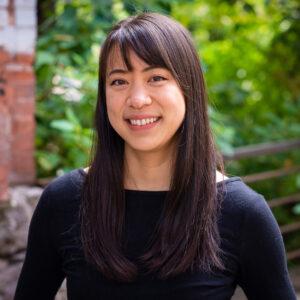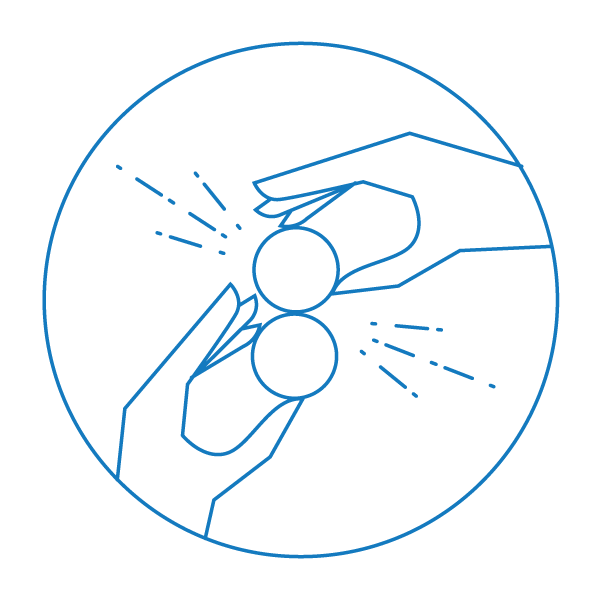
Communications Coordinator
Jacobsen Valentine preparing meals at the Redd on Salmon Street by Emilie Chen.
In a collaboration with the Redd on Salmon Street and Ecotrust, Feed the Mass is preparing, delivering, and serving hundreds of free meals every week.

Boxes upon boxes of noodles, fresh produce, and several gallons of yakisoba sauce. Six people, one community kitchen. This team of volunteers, led by chef and Feed the Mass Executive Director Jacobsen (Jacob) Valentine, are ready to prepare, cook, and deliver restaurant-quality meals—this week, it’s vegetarian yakisoba—free to anyone who would like to eat.
Two months ago, Jacob was canceling his cooking classes and questioning how to reach the Portland community with his message of empowerment through food, during an unfolding pandemic. Eight weeks later, after a marathon logistics, budgeting, and operations planning with Redd campus manager Emma Sharer and Ecotrust’s VP of Events and Engagement Jeanne Kubal, the Community Kitchen at Redd East has become central ops for putting Jacob’s latest vision—the Fed free meal program—into action.

Fed acknowledges the sudden job loss for thousands, increased food waste as restaurants shutter and supply chains are disrupted, and heightened food insecurity during the pandemic. Seizing the moment to address an urgent need, Jacob saw the opportunity to recruit volunteers, turn food donations into hot meals, and feed the community through this crisis and beyond.
During this inaugural effort to prepare 500 free meals, Jacob and five volunteers—all equipped with food preparation gloves and cloth face masks—gather in the Redd Community Kitchen to spend two half-days chopping, sauteing, and packaging vegetables and yakisoba noodles.
While some of the meals were scheduled to be picked up directly from the Redd, through the Fed program, Jacob is also coordinating drop sites and delivery to those experiencing food insecurity. The goal, Jacob says, is to produce between 500 and 600 meals a week, cooked by volunteers and distributed through a network of community ambassadors who are connected to their neighbors and trained to safely deliver meals.

“
There are people in need everywhere, and we want to do our part to make sure at bare minimum there are meals available for those in need.
—Jacobsen Valentine

Through ingredient donations, Fed hopes to make a dent in food waste. Recently, Jacob got a call from The Chefs Warehouse—a restaurant supply store and specialty food store—to discuss donating hundreds of pounds of frozen food. Behind the scenes, Jacob and Emma are building producer and supporter partnerships to create an outlet for locally-grown goods, potentially using the Redd as a hub for aggregating ingredients.
Beyond connections to local food producers, the program’s ongoing success depends on funding and access to materials like sustainable to-go containers. Jacob is throwing his full energies into the logistics, outreach, and coordination of bringing materials, ingredients, and people together, while also leading meal prep.
“Food is my love language,” Jacob says. “There are people in need everywhere and we want to do our part to make sure at bare minimum there are meals available for those in need.”

blog
We connect with the Redd campus manager, B-Line founder, and our VP of events and engagement for an update on activities at the Redd campus amid COVID shutdowns.

blog
Angela Hedstrom shares current challenges around keeping farm to school relationships afloat during the COVID-19 crisis.

blog